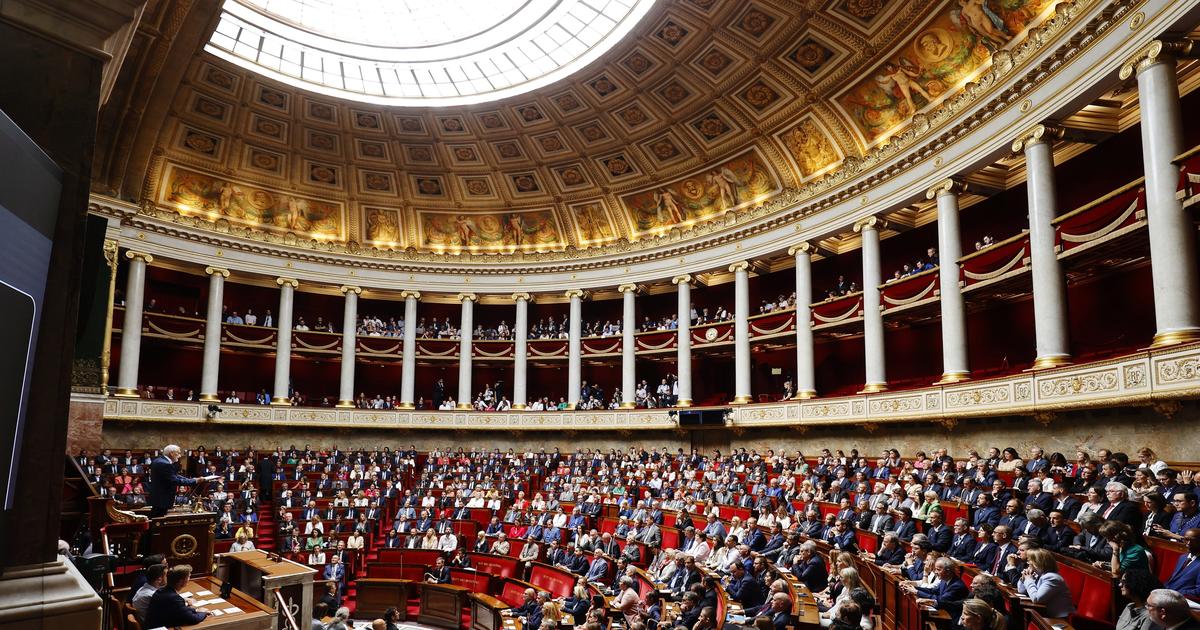A majority to adopt the laws, a general policy speech followed by a motion of no confidence, internal battles for the questorship... At the dawn of this new legislature, the National Assembly becomes more than ever the theater of the French political life.
For years, it will probably be the nerve center, and will bring with it a whole lot of words that are sometimes unknown to us.
To find your way around,
Le Figaro
draws up a list of them, and establishes its little dictionary of parliamentary life.
Presidency of the National Assembly
Highly prized role, appointed by the vote of parliamentarians.
The lucky winner then chairs most of the public meetings for the next five years.
By his title, he also becomes the fourth personage of the State, consulted by the President to dissolve the Assembly or to implement the special powers of Article 16.
Commission
Place of shadow where the deputies work, to examine, debate and adopt the texts then presented in public session.
There are eight types of commissions: Law, Finance, Cultural Affairs and Education, Economic Affairs, Foreign Affairs, National Defense and Armed Forces, and Sustainable Development and Land Use Planning.
Coveted, their presidency falls to the presidential majority, with the exception of the finance commission which must be attributed to the opposition.
Parliamentary group
Structure allowing MPs to come together and benefit from speaking time and access to positions in the Hemicycle.
In 2017, ten groups - a record - had been formed.
They corresponded to traditional political families, such as Les Républicains or the Socialist Party, but also to more heterogeneous chapels.
Nomadic deputies have the status of "non-attached".
Quaestor
Position occupied by three deputies - two from the majority, one from the opposition - elected by their peers at the start of the legislature, then every year at the start of ordinary sessions.
Their missions: to manage the administrative and material aspects of life at the National Assembly.
They draw up, execute and control the budget of the Chamber of Brewing.
They also incur expenses and manage credits.
Majority
Dominant political force in the National Assembly.
To carry out their reforms, the newly elected Presidents of the Republic hope to be able to rely on an absolute majority, situated at 289 deputies.
Below this threshold, it only becomes relative.
Questions to the government
Weekly meeting, organized on Tuesday afternoon, during which the deputies can question the ministers, who are required to answer them.
General policy statement
Optional but traditional stage in the Fifth Republic, during which the Prime Minister set out the main orientations of his program.
It may be followed by a vote of confidence, also optional, and engaging the responsibility of the government.
If this fails, the government must resign.
Motion of censure
Tool in the hands of the opposition to force a government to resign.
It must be tabled by a tenth of the deputies - 58 -, and adopted by a majority of them.
Parliamentary session
Period of the year during which Parliament meets to deliberate in plenary session.
The
ordinary session
runs from the first working day of October to the last working day of June, within the limit of 120 sitting days per year.
An
extraordinary session
can also meet at the request of the Prime Minister or of the majority of the deputies, on a specific agenda.
Bill and bill
Texts tabled by the government - the project -, and by the deputies - the proposal.
Parliamentary shuttle
Route followed for legal texts.
To be adopted, they must be voted on in identical terms by both Chambers.
After a first vote in the Assembly, and if the Senate makes changes, the new text is once again voted by the Palais Bourbon.
And so on.
Mixed parity commission
Possible recourse when the two Chambers cannot agree on a text.
Composed of deputies and senators, the Joint Joint Committee (CMP) aims to find a compromise.
If it fails, the National Assembly has the last word.
49-3
Means for the Prime Minister to vote on a text without having to debate.
Thanks to article 49-3 of the Constitution, the Prime Minister engages the responsibility of his government.
If it is not countered by a motion of censure voted by the opposition within 24 hours, the text is considered adopted.
However, the tool is limited to finance bills and to one text per parliamentary session.

